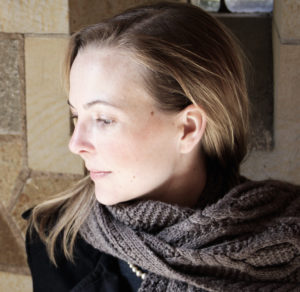Tafelmusik Baroque Orchestra & Chamber Choir
Directed by Ivars Taurins
Live performances:
November 25, 2022 at 8pm at Jeanne Lamon Hall, Trinity-St. Paul’s United Church
November 26, 2022 at 2pm at Jeanne Lamon Hall, Trinity-St. Paul’s United Church
Program
| Marc-Antoine Charpentier 1643–1704 | Prélude & Salve regina à 3 chœurs, H.24 |
| Francis Poulenc 1899–1963 | Salve regina (1941) Petites prières de S François d’Assise (1952) O magnum mysterium (1952) |
| Charpentier Poulenc Charpentier | Prélude & Miseremini mei, H.311 Ave verum corpus (1952) Regina cæli, H.46 |
| Tawnie Olson born 1974 | Salve Mater (2022; world premiere) |
Intermission
| Charpentier | Missa assumpta est Maria, H.11 |
Tafelmusik Chamber Choir
Soprano Jane Fingler*, Roseline Lambert*, Carrie Loring, Teresa Mahon*, Meghan Moore, Susan Suchard, Sinéad White*
Alto Nicholas Burns*, Kate Helsen, Simon Honeyman*, Peter Koniers, Jessica Wright
Tenor Paul Jeffrey, Will Johnson, Robert Kinar*, Cory Knight*, Kevin Myers*
Bass Parker Clements, Nicholas Higgs*, Keith Lam*, Alan Macdonald*, Graham Robinson*
Rehearsal accompanist: Andrei Streliaev
*soloists in Charpentier works
Tafelmusik Baroque Orchestra
Violin Geneviève Gilardeau, Patricia Ahern, Christopher Verrette, Julia Wedman
Violin/Viola Christopher Verrette, Cristina Zacharias
Viola Brandon Chui, Patrick G. Jordan
Violin/Viola Christopher Verrette, Cristina Zacharias
Violoncello Elinor Frey, Margaret Gay
Double bass Shanti Nachtergaele
Flute Grégoire Jeay
Oboe John Abberger
Theorbo Jonathan Stuchbery
Organ Charlotte Nediger
Texts & Translations
Charpentier & Poulenc Salve Regina
| Salve, Regina, mater misericordiæ, vita, dulcedo et spes nostra, salve. Ad te clamamus, exsules filii Evæ. Ad te suspiramus, gementes et flentes in hac lacrimarum valle. Eya ergo, advocata nostra, illos tuos misericordes oculos ad nos converte. Et Jesum, benedictum fructum ventris tui, nobis post hoc exsilium ostende. O clemens, o pia, o dulcis Virgo Maria. | Hail, Queen, mother of mercy, our life, sweetness, and hope: hail! To thee do we cry, poor banished children of Eve. To thee we sigh, moaning and weeping in this vale of tears. Turn then, our advocate, turn thy merciful eyes toward us. And show us Jesus, the blessed fruit of thy womb, after this exile. O clement, O loving, O sweet Virgin Mary. |
Poulenc Petites prières de S François d’Assise
| I. Salut, Dame Sainte Salut, Dame Sainte, reine très sainte, Mère de Dieu, ô Marie qui êtes vierge perpétuellement, élue par le très saint Père du Ciel, consacrée par Lui avec son très saint Fils bien aimé et l’Esprit Paraclet, vous en qui fut et demeure toute plénitude de grâce et tout bien ! Salut, palais ; salut, tabernacle ; salut, maison ; salut, vêtement ; salut servante ; salut, mère de Dieu ! Et salut à vous toutes, saintes vertus qui par la grâce et l’illumination du Saint Esprit, êtes versées dans les cœurs des fidèles et, d’infidèles que nous sommes, nous rendez fidèles à Dieu. II. Tout puissant, très saint Tout puissant, très saint, très haut et souverain Dieu ; souverain bien, bien universel, bien total ; toi qui seul es bon ; puissions-nous te rendre toute louange, toute gloire, toute reconnaissance, tout honneur, toute benediction ; puissions-nous rapporter toujours à toi tous les biens. Amen. III. Seigneur, je vous en prie Seigneur, je vous en prie, que la force brûlante et douce de votre amour absorbe mon âme et la retire de tout ce qui est sous le ciel, afin que je meure par amour de votre amour, puisque vous avez daigné mourir par amour de mon amour. IV. Ô mes très chers frères Ô mes très chers frères et mes enfants bénis pour toute l’éternité, écoutez-moi, écoutez la voix de votre Père. Nous avons promis de grandes choses, on nous en a promis de plus grandes ; gardons les unes et soupirons après les autres. Le plaisir est court, la peine éternelle. La souffrance est légère, la gloire infinie. Beaucoup sont appelés, peu sont élus ; tous recevront ce qu’ils auront mérité. Ainsi soit-il. | I. Hail, Holy Lady Hail, holy Lady, queen most holy, Mother of God, O Mary, you who are forever virgin, chosen by the most holy heavenly Father, consecrated by Him and His most holy and beloved Son and the Holy Spirit. You who were and shall remain in the complete fullness of grace and all that is good! Hail to the palace; hail to the tabernacle; hail to the house; hail to the vestments; hail, handmaiden; hail, Mother of God! And hail to all your holy virtues which through the grace and light of the Holy Spirit are poured into the hearts of the faithful, and make us, who are unfaithful, faithful unto God. II. All powerful, most holy All powerful, most holy, most high and sovereign God; sovereign goodness, universal goodness, complete goodness; thou who alone art good; let us offer to thee all praise, all glory, all gratitude, all honour, all blessing; may we always bring to thee all that is good. Amen. III. Lord, I beseech you Lord, I beseech you, let the burning and gentle power of your love consume my soul and remove it from all that is beneath the heavens, so that I may die through love of your love, as you submitted yourself to die through love of my love. IV. O my very dear brothers O my very dear brothers and my children blessed for all eternity, hear me, hear the voice of your Father. We have promised great things, yet greater things have been promised to us; let us hold to the one and aspire after the other. Pleasure is brief, pain is eternal. Suffering is light, glory is infinite. Many are called, few are chosen. All will receive that which they have deserved. So be it. |
Poulenc O magnum mysterium
| O magnum mysterium, et admirabile sacramentum, ut animalia viderent Dominum natum, jacentem in præsepio. Beata Virgo, cujus viscera meruerunt portare Dominum Christum. | O great mystery and wonderful sacrament, that animals should see the newborn Lord lying in a manger. Blessed is the Virgin, whose womb was worthy to bear Christ our Lord. |
Charpentier Miseremini mei
| Miseremini mei, miseremini mei, saltem vos amici mei ; quia manus Domini tetigit me. (Job 19:21) | Have pity upon me, have pity upon me, O ye my friends; for the hand of God hath touched me. |
Poulenc Ave verum corpus
| Ave verum corpus Christi, natum ex Maria Virgine vere passum immolatum in cruce pro homine. | Hail, true body of Christ, born of the Virgin Mary, who has truly suffered, sacrificed on the cross for humanity. |
Charpentier Regina cæli
| Regina cæli laetare, alleluya. Quia quem meruisti portare, alleluya. Resurrexit sicut dixit, alleluya. Ora pro nobis Deum, alleluya. | Queen of Heaven, rejoice, alleluia. For he whom you were worthy to bear, alleluia. Now has risen, as he said, alleluia. Pray for us to God, alleluia. |
Olson Salve Mater
| Salve Mater, prudens, alma, et fortis, vita, dulcedo et spes nostra, salve. Erramus exsules, filii Hevæ, gementes et flentes in hac lacrimarum valle. Oculos ad te convertimus virtus tua modestiaque tua nos impleant ut in hac vita sequamur et post hoc exsilium videamus benedictum fructum ventirs tui : Jesum. O clemens, o pia, o sapiens Virgo Maria. | Hail mother, thoughtful, kind, and strong, our life, sweetness, and hope: hail. We wander, poor banished children of Eve, mourning and weeping in this vale of tears. We turn our eyes to you; Let your courage, your humility inspire us, so that in this life we may follow, and after our exile we may see, the blessed fruit of thy womb: Jesus. O clement, O loving, O wise Virgin Mary. |
Charpentier Missa Assumpta est Maria
| Kyrie Kyrie eleison. Christe eleison. Kyrie eleison Gloria Gloria in excelsis Deo. Et in terra pax hominibus bonæ voluntatis. Laudamus te, benedicimus te, adoramus te, glorificamus te. Gratias agimus tibi propter magnam gloriam tuam. Domine Deus, rex cælestis, Deus Pater omnipotens. Domine Fili unigenite Jesu Christe. Domine Deus, Agnus Dei, Filius Patris. Qui tollis peccata mundi, miserere nobis. Qui tollis peccata mundi, suscipe deprecationem nostram. Qui sedes ad dexteram Patris, miserere nobis. Quoniam tu solus sanctus, tu solus Dominus, tu solus altissimus, Jesu Christe. Cum Sancto Spiritu in gloria Dei Patris. Amen. Credo Credo in unum Deum. Patrem omnipotentem, factorem cæli et terræ, visibilium omnium et invisibilium. Et in unum Dominum Jesum Christum, Filium Dei unigenitum. Et ex Patre natum ante omnia sæcula. Deum de Deo, lumen de lumine, Deum verum de Deo vero. Genitum, non factum, consubstantialem Patri per quem omnia facta sunt. Qui propter nos homines et propter nostram salutem descendit de cælis. Et incarnatus est de Spiritu Sancto ex Maria virgine et homo factus est. Crucifixus etiam pro nobis sub Pontio Pilato passus et sepultus est. Et resurrexit tertia die secundum scriptures : et ascendit in cælum, sedet ad dexteram Patris. Et iterum venturus est cum gloria judicare vivos et mortuos, cujus regni non erit finis. Et in Spiritum Sanctum, Dominum et vivificantem qui ex Patre Filioque procedit. Qui cum Patre et Filio simul adoratur et conglorificatur qui locutus est per Prophetas. Et unam sanctam catholicam et apostolicam Ecclesiam. Confiteor unum baptisma in remissionem peccatorum. Et expecto resurrectionem mortuorum, Et vitam venturi sæculi. Amen. Sanctus Sanctus, sanctus, sanctus Dominus Deus Sabaoth. Pleni sunt cæli et terra gloria tua. Hosanna in excelsis. Agnus Dei Agnus Dei qui tollis peccata mundi, miserere nobis. Domine salvum Domine Salvum fac Regem et exaudi nos in die qua invocaverimus te. | Kyrie Lord have mercy. Christ have mercy. Lord have mercy. Gloria Glory be to God in the highest and on earth peace to men of good will. We praise thee, we bless thee, we worship thee, we glorify thee. We give thee thanks for thy great glory. Lord God, heavenly king, God the Father almighty. Lord, only Son of the Father, Jesus Chris. Lord God, Lamb of God, Son of the Father. Thou who takest away the sins of the world, have mercy upon us: Thou who takest away the sins of the world, receive our prayer: Thou who art seated at the right hand of the Father, have mercy on us. For thou alone art holy, thou alone art the Lord, thou alone art the most high, Jesus Christ. With the Holy Spirit, in the glory of God the Father. Amen. Credo I believe in one God. The Father almighty, maker of heaven and earth, of all things visible and invisible. And in one Lord Jesus Christ, the only begotten Son of God. Born of the Father before all worlds. God from God, light from light, true God from true God. Begotten, not made, of one being with the Father through whom all things were made. For us men and for our salvation he came down from heaven. And was incarnate by the Holy Ghost of the virgin Mary, and was made man. He was crucified also for us; under Pontius Pilate he suffered and was buried. And he rose again on the third day, according to the scriptures. And ascended into heaven; and sitteth at the right hand of the Father. He will come again with glory to judge the living and the dead, and his kingdom will have no end. And in the Holy Spirit, the Lord and giver of life, who proceedeth from the Father and the Son. Who with the Father and the Son is adored and glorified, who hath spoken through the prophets. And in one holy, catholic, and apostolic Church. I confess one baptism for the remission of sins. And I look forward to the resurrection of the dead, And the life of the world to come. Amen. Sanctus Holy, holy, holy, Lord God of Hosts. Heaven and earth are full of thy glory. Hosanna in the highest. Agnus Dei Lamb of God, who takest away the sins of the world, have mercy upon us. Domine salvum God save the King and hear us in the day when we shall call upon thee. |
CURATOR’S NOTE
by Ivars Taurins
In this program, we take the sumptuous music of the 17th-century composer Marc-Antoine Charpentier with us into a musical hall of mirrors to meet the music of the 20th-century composer Francis Poulenc, who in turn looks back to the style and music of his predecessors. For me, Poulenc’s music is a perfect partner to the baroque music of Charpentier, sharing an outward simplicity and a masterful use of harmonic colour as a potent, expressive device to illuminate the text. We then angle a mirror to the present day, with a new commission by Canadian composer Tawnie Olson.
Old meets new, and new transforms old, in this intriguing journey through time. Reflected in the mirrors is the enigmatic figure of Mary, a central figure of worship and veneration in the Catholic Church, and the inspiration for centuries of choral music.
PROGRAM NOTES
by Charlotte Nediger

Marc-Antoine Charpentier
Marc-Antoine Charpentier was born in Paris in 1643, the son of a master scribe. Next to nothing is known of his early life and education, but sometime in the 1660s he travelled to Rome. He was in Italy for some three to five years, studying with, among others, Giacomo Carissimi. Upon his return he became one of only a few French baroque composers to flourish without direct court patronage. Although he did not lack royal favour—Louis XIV saw to it that he was employed as teacher of both his nephew, Philippe d’Orléans, and his oldest son, the Dauphin—Charpentier’s musical activities were based in Paris, away from, or at least on the fringe of courtly circles. Immediately upon returning from Italy he was retained by the influential noblewoman Marie de Lorraine, known as Mademoiselle de Guise: he was given an apartment in the grand Hôtel de Guise, and served as singer (haute-contre, or high tenor) and composer-in-residence. Mlle de Guise maintained a large and highly respected musical establishment of singers and instrumentalists, and Charpentier remained with her for almost 20 years. In 1688, after the death of Mlle de Guise, he took up the position of Maître de Musique at the principal Jesuit Church of Saint-Louis, located in the Marais district of Paris. Ten years later, he assumed his final appointment, the prestigious post of Maître de Musique at the Sainte-Chapelle.
Charpentier’s independence from the royal court allowed him to develop a style of his own. The court musicians, with Lully at the helm, directed much of their energies towards codifying a French style, free of the influence of Italy, the home of the “baroque revolution.” Charpentier, however, arrived in Paris anxious to celebrate the Italian style. In the de Guise family and the Jesuits he found patrons who shared his interest and enthusiasm, and with their encouragement, he developed a musical voice that was absolutely unique: a harmonic language that was luxuriously French and audaciously Italian, and an expressiveness that combined French subtlety with Italian naturalness.
Although Charpentier spent some time working in the theatre, notably collaborating with Molière, the vast majority of his work is comprised of settings of sacred texts. Some 500 religious works survive, carefully copied by Charpentier, gathered in numbered cahiers, and bound in 28 large volumes (the influence, perhaps, of his father’s profession). The works cover a remarkably wide range of genres, from simple hymn settings for solo voice to large concerted mass settings.
The Salve Regina was written a few years after Charpentier’s return to Paris from Italy, but the Roman influences are clear in this. It is scored for three choirs: two four-part choirs, and a third solo trio of three male voices (the exules, or exiles), all three groups supported by continuo players. The polychoral texture was rare in France, but common in Rome and Venice, undoubtedly inspired by the cities’ magnificent churches.
The beautiful and intimate setting of Miseremini mei is part of Charpentier’s Motet pour les trépassés (Motet for the dead), subtitled Plaintes des âmes du purgatoire (Lament of the souls in purgatory). It was part of a complete setting of the Office des morts (Office of the Dead) thought to have perhaps been written by Charpentier for the vigils conducted at the Basilica of Saint-Denis prior to the funeral in 1672 of Marguerite de Lorraine (mother of his patron, Mlle de Guise).
The spirited Regina cæli is part of a sequence of Marian antiphons written for Vespers services, probably at the Church of Saint-Louis.
Charpentier composed 12 Mass settings over a span of 30 years. The last of these is the masterful Missa Assumpta est Maria, written in 1699, one year into his appointment as director of music at the Sainte-Chapelle du Palais in Paris. The Mass is a sumptuous large-scale mature work full of contrasts between small ensembles of soloists, full choir and orchestra, and beautiful sinfonies. It is in many ways the ultimate expression of Charpentier’s unique blend of Italian and French style, and of the exceptional beauty, balance, and craftsmanship of his music.
Check out Ivars Taurins’ Listening Guide to Charpentier to learn more about Charpentier and his music.

Francis Poulenc
Born in Paris in 1899, the formative years of Francis Poulenc were spent in the company of musicians, writers, and artists. Formal studies were disrupted by World War I and conscripted military service in the years that followed, but Poulenc arranged private study throughout. He established a successful career, alternating periods of concert-giving as a pianist—notably as a duo with the baritone Pierre Bernac—and composing. The latter was often done at his country house in Noizay, where he retreated to work, and where he spent the years of World War II.
Poulenc turned to the composition of sacred choral music midway through his life. The shock of the violent death of a close friend in a car accident in 1936 led Poulenc to re-examine his own Catholicism and spirituality, and from that point until his death he produced a steady stream of remarkable choral works. He cited his early study of Bach chorales as “a decisive influence,” as well as the works of Monteverdi and Palestrina. He considered his choral and religious music to be foremost in his output: “I think, in fact, that I’ve put the best and most genuine part of myself into it … I have a feeling in that sphere I’ve really produced something new, and I’m not far off in thinking that if people are still interested in my music 50 years from now it will be more in the Stabat Mater than the Mouvements perpétuels.” The natural melodies, colours, textures, and clarity in Poulenc’s scores recall the palettes of earlier composers.
Poulenc’s setting of the Salve regina text was written some 270 years after that of Charpentier, yet has a similar feel. Both are set simply, with a consoling, lullaby-like rhythm. It is particularly poignant given the year of composition, 1941, where consolation was much needed in France.
The Petites prières de S François d’Assise were written in the summer of 1948 at the request of Poulenc’s grand-nephew Jérome, a Franciscan friar at the monasteryof Champfleury near Poissy. Jérome sent his uncle French translations of four prayers attributed to Francis of Assisi, the first addressed to Mary. In an interview Poulenc explained, “I venerate St Francis, but he intimidates me slightly. In setting these wonderfully touching short prayers to music, I wanted to perform an act of humility. So in the fourth piece, for example, a solo tenor begins, like a monk drawing his brethren to prayer.” He dedicated his settings, for male choir, to the Franciscans of Champfleury, who performed them as part of their liturgy.
In 1952 Poulenc wrote four exquisite miniatures: Quatre motets pour le temps de Noël (Four motets for the season of Christmas). The first of these, O magnum mysterium, paints a picture of the wonder of the nativity, with a particularly intimate homage to Mary.
Poulenc’s setting of Ave verum corpus was written the same year, a three-part setting for the choir of the Pennsylvania College for Women in Pittsburgh. Like Poulenc’s other Marian works, this motet expresses intimate and sincere devotion.

Note from Tawnie Olson about Salve Mater
Considering how important she is to Christianity, it is surprising how little information the New Testament provides about the Blessed Virgin Mary. This has not, however, stopped Christians from filling in—theologically and artistically—the enormous gaps in the Gospels’ accounts of Mary with our own ideas about what a woman worthy of bearing the Son of God must have been like. Sometimes, in our zeal to project our conceptions of The Ideal Woman onto this enigmatic first-century figure, we’ve strayed a bit from the little we do know. As Denise Levertov says in her brilliant poem, Annunciation, “[…] we are told of meek obedience. No one mentions courage.”
In setting a new text adapted from the Salve Regina, I tried to honour this brave and generous Jewish woman in a way that rings true to my understanding of her character and story, and to my own faith and beliefs. I am very grateful to my husband, Michael Appleby, for doing the lion’s share of the Latin translation.
Salve Mater was commissioned by Tafelmusik, and is dedicated to the Tafelmusik Chamber Choir and Ivars Taurins.
About Tawnie Olson
Described as “taut, focused… colourful” by Gramophone, “mesmerizing,” by critic Tim Smith, and “especially glorious… ethereal” by Whole Note, the music of Canadian composer Tawnie Olson draws inspiration from politics, spirituality, the natural world, and the musicians for whom she composes. Her opera Sanctuary and Storm (libretto by Roberta Barker) is the winner of the 2021–2023 National Opera Association Dominick Argento Chamber Opera Competition. Olson is also the winner of the 2018 Barlow Prize, a consortium commission for the BYU Singers, The Crossing, and Seraphic Fire, and of a 2019 Copland House Residency Award. She was the Composer-in-Residence of the 2018 Women Composers Festival of Hartford. Her scores are available from the Canadian Music Centre, E.C. Schirmer, Galaxy Music, Hal Leonard’s BandQuest and Mark Foster series, and Oxford University Press.
Thank You to our Generous Donors
Tafelmusik is deeply grateful to our generous donors who have continued to support us through this challenging time. Your support has inspired us to remain strong and to deliver joy to our community through our music, and will enable us to persevere until we can once again perform live for you, our cherished patrons. Thank you for believing in Tafelmusik and in the power and beauty of music.
If you would like to make a gift, please click here or contact us at donations@tafelmusik.org.
Thank you to our government sponsors



